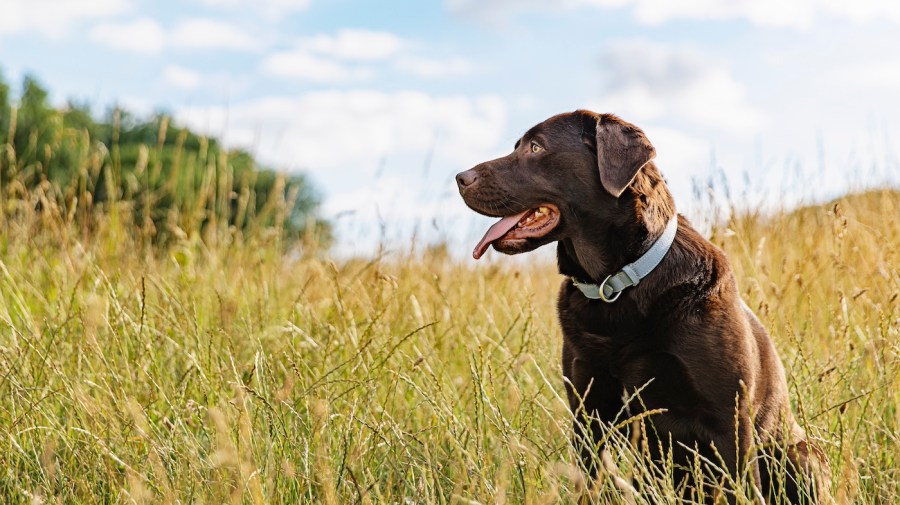
In her book “No Going Back,” Gov. Kristi Noem (R-S.D.) discloses a shocking incident from two decades ago, when she killed her family’s 14-month-old puppy with a shotgun after the dog exhibited normal but rambunctious behavior on a hunting trip. This troubling revelation is more than just a personal moral failing on Noem’s part. Her decision to recount this story with pride represents a profound abdication of her responsibilities as a leader and elected official.
The public backlash to this troubling revelation has been encouraging. People across the political spectrum have expressed their horror and condemnation of Noem’s actions, underscoring a fundamental truth: Compassion for animals is not a partisan issue, but a core human value that unites us all.
But while it’s heartening to see such widespread empathy for a puppy, we must also recognize that our circle of compassion is often too narrow. Dogs, cats and a select few other species are frequently granted a level of moral consideration that we fail to extend to countless other sentient creatures. Pigs, cows, chickens and fish, for example, are routinely subjected to immense cruelty and suffering in our factory farming system, yet their plight rarely elicits the same public outcry.
If we are to truly live up to our values of compassion and respect for life, we must expand our sphere of concern to encompass all creatures capable of suffering. The fact that an animal is not cute, cuddly or familiar to us does not make its pain any less real or its life any less valuable.
Noem’s pride in her cruel actions towards her puppy is particularly offensive given the multitude of humane options available to her at the time. Professional training, behavior modification and responsible rehoming were all viable alternatives that any conscientious caretaker would have pursued. Her choice to resort to lethal violence instead was a disturbing reflection of a mindset that views animals as disposable and unworthy of moral consideration.
Tragically, this mindset is not limited to Noem. It is pervasive in our society, and it enables the systematic mistreatment of billions of animals each year. When leaders like Noem normalize and even boast about such cruelty, they contribute to a culture that devalues animal life and undermines our collective humanity.
As a society, we must do better. We must recognize that compassion is not a finite resource to be hoarded and selectively applied, but a boundless wellspring that grows the more we exercise it. By extending our empathy to all sentient beings, we not only alleviate an immense amount of suffering, but we also cultivate the best in ourselves.
Noem would do well to take note of the raft of worthy animal protection bills in Congress supported by a bipartisan majorities. Animal welfare is at the very heart of congressional debate over the Farm Bill. There are two measures concerning companion animals, animals in puppy mills and other animals in need, and they deserve to be included in the Farm Bill and passed into law.
The Better Collaboration, Accountability and Regulatory Enforcement (CARE) for Animals Act, which is sponsored by Rep. Guy Reschenthaler (R-Penn.), Rep. Mike Quigley (D-Ill.), Sen. Richard Blumenthal (D-Conn.) and Sen. John Kennedy (R-La.), would give the Department of Justice more tools to strengthen enforcement of the Animal Welfare Act and provide meaningful deterrents to acts of cruelty.
The Puppy Protection Act — sponsored by Rep. Brian Fitzpatrick (R-Penn.), Rep. Reschenthaler, Rep. Jim McGovern (D-Mass.) and Rep. Jimmy Panetta (D-Cali.) — would address serious gaps in welfare standards for tens of thousands of dogs and puppies at large-scale breeding operations licensed by the USDA.
More urgently, a few House Agriculture Committee Republicans are attempting to gut states’ rights and animal welfare by including language to invalidate more than a dozen state laws addressing intensive confinement cruelty to animals raised for food, along with hundreds of laws relating to states’ rights to protect puppies and regulate products within their borders. That’s wrong, not least because nearly 80 percent of American voters, including nearly equal numbers of Republicans and Democrats, support enactment of laws designed to protect farm animals.
It would be a shame if House Agriculture Chair Glenn Thompson (R-Penn.) and his colleagues missed the moral opportunity revealed by Noem’s terrible misjudgment. Americans want their elected representatives to do right by animals and take action to spare them from callous and unnecessary cruelty. They’re making their preferences for humane treatment clear in the marketplace and in the court of public opinion — and Congress should follow their lead.
The public condemnation of Noem’s actions is a heartening sign that our society’s moral compass is pointing in the right direction. But we must not stop at dogs and cats. Expanding our circle of compassion to include all creatures capable of suffering will lead towards a more just and humane world.
The link between animal cruelty and human violence only underscores the urgency of this imperative. By fostering a culture of respect for all life, we not only improve the lives of animals, but we create a society that is safer and more peaceful for humans as well.
Gov. Noem had an opportunity to demonstrate empathy, responsibility and kindness in the face of difficult challenges. By instead boasting about callous violence, she betrayed the public trust and the principles of decency that bind us together. Let us learn from this shameful episode and recommit ourselves to building a better world — for the sake of animals and humans alike.
Kitty Block is the president and CEO of the Humane Society of the United States. Sara Amundson serves as the president of the Humane Society Legislative Fund.














